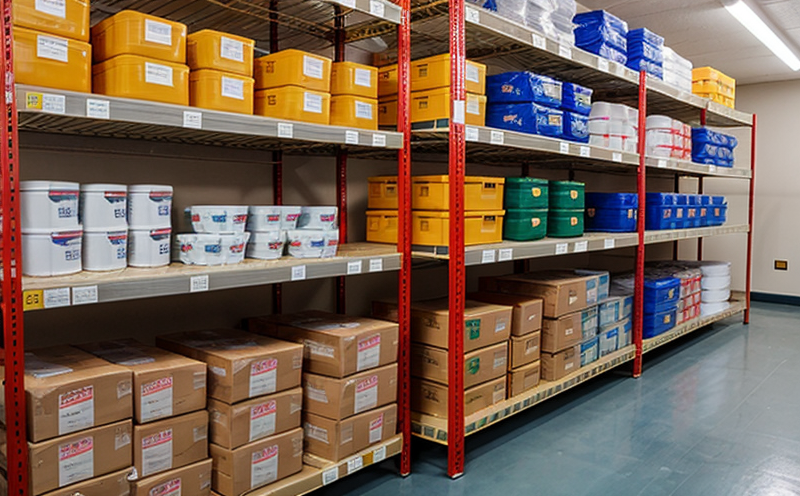API Excipient Compatibility Stability Testing
The pharmaceutical industry is a highly regulated environment where ensuring product quality and safety is paramount. Active Pharmaceutical Ingredients (APIs) are the key components of drug products, but their effectiveness can be significantly influenced by excipients—substances used to assist in the formulation process.
Excipients play a critical role in the stability and shelf-life of APIs. Stability testing helps determine how long an API remains effective under various environmental conditions, including temperature, humidity, light exposure, and other factors that may affect its chemical integrity over time. This service evaluates the compatibility between an API and excipients to ensure that any interactions do not compromise product efficacy or introduce safety risks.
The stability of APIs in formulations is crucial for regulatory compliance and patient safety. Regulatory bodies such as the US FDA and EMA require manufacturers to demonstrate the shelf-life and stability of their products through extensive testing. This service ensures that APIs remain stable over time, thereby meeting these regulatory requirements.
Our laboratory uses advanced analytical techniques and follows international standards like ISO 17025 and ASTM E389 to perform this testing. We employ a variety of methodologies including accelerated aging tests, photostability studies, and high-performance liquid chromatography (HPLC) for precise measurement of API degradation products.
The process begins with selecting the appropriate excipients based on their compatibility profile. Once selected, we conduct initial stability testing to establish baseline data under controlled conditions. Accelerated aging simulates real-world exposure by increasing temperature or humidity levels beyond typical storage conditions. This helps identify potential issues early in the development cycle.
Photostability studies assess how light affects the API-excipient mixture over time. These tests are critical for drugs that require protection from UV radiation during packaging and distribution. High-performance liquid chromatography (HPLC) is used to quantify impurities or degradation products formed due to chemical reactions between the API and excipients.
Once the stability data has been collected, it undergoes rigorous analysis by our team of expert scientists who interpret results against industry standards. Reports are generated detailing the observed changes in the API-excipient system over time, along with recommendations for storage conditions that will maintain product quality throughout its shelf life.
This service is essential not only for ensuring compliance but also for optimizing formulation design to enhance drug performance and patient satisfaction. By identifying potential stability issues early on, manufacturers can make informed decisions about excipient selection, dosage form development, and packaging strategies.
- Ensures regulatory compliance with FDA, EMA, and other international standards.
- Identifies potential stability issues before they impact product quality or safety.
- Optimizes formulation design to enhance drug performance and patient satisfaction.
Why Choose This Test
- Ensures regulatory compliance with FDA, EMA, and other international standards.
- Identifies potential stability issues before they impact product quality or safety.
- Optimizes formulation design to enhance drug performance and patient satisfaction.
- Saves time and resources by preventing costly mistakes down the line.
- Provides detailed reports that inform critical decisions throughout the development cycle.
Customer Impact and Satisfaction
By choosing our API-excipient compatibility stability testing service, pharmaceutical companies can significantly enhance their product quality assurance processes. This leads to increased customer confidence in both the safety and efficacy of their products. Moreover, it contributes positively towards achieving regulatory approval more efficiently.
Our dedicated team works closely with clients throughout every step of the process, ensuring that each requirement is met accurately and promptly. Positive feedback from satisfied customers attests to our commitment to excellence in all areas of service delivery.
Use Cases and Application Examples
This testing method finds application across various scenarios within the pharmaceutical industry:
- Innovative drug development projects where new excipients are being evaluated for their compatibility with existing APIs.
- Formulation changes aimed at improving bioavailability or reducing side effects, necessitating thorough evaluation of all components involved.
- Compliance audits conducted periodically to ensure ongoing adherence to stringent quality standards set by regulatory authorities.
The results from this testing play a crucial role in guiding decision-making processes related to formulation changes and packaging decisions. This ensures that the final product meets not only regulatory expectations but also performs optimally under real-world conditions.





